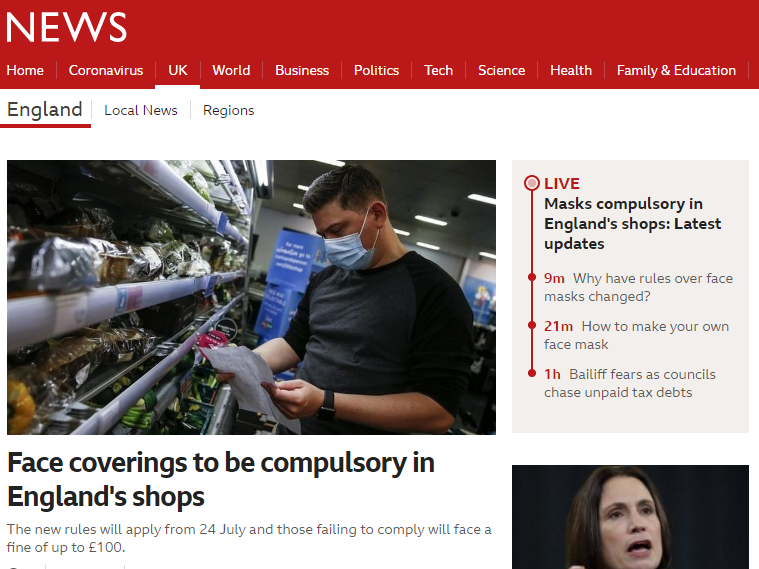
The BBC News website will “cease to function in its current state” if the corporation closes its central online hub in Birmingham, an insider has claimed.
Some 450 jobs in radio, TV and online will go at BBC England as it must make savings of £25m by the end of March 2022 due to a huge hit in income from Covid-19 despite record broadcast and digital audience figures.
As part of these cuts, the web team that acts as a central quality control filter for regional news stories will be ditched after 19 years resulting in the loss of about 33 jobs.
As well as the central sub-editors, the team includes journalists producing and publishing their own England-wide stories, features, video, data journalism and about a quarter of the BBC Sport website’s content.
The BBC has said that moving editorial control and subbing of BBC England’s online regional news stories from the central hub in Birmingham to regional newsrooms would make content feel more locally relevant and align online and TV teams more consistently.
But a source within BBC News online told Press Gazette the proposals would have a “devastating effect” on the website which they said would “cease to function in its current state”.
They said the move to local subbing will lead to a dip in quality as senior journalists in regional teams already have a range of admin and management duties to fulfill.
“They won’t be able to sub copy to the same standards and do all this at the same time,” they said.
“The other work – recruitment, staff appraisals, organising rotas, etc – will still need to be done by someone.
“They also won’t be working to the same national agenda, so stories will be missed. At present, there is local subbing in four regions, but only of stories that are not expected to interest a wider audience.”
They claimed that the central newsdesk’s experienced sub-editors save the BBC from two or three legal cases and dozens of reputational injuries every week.
And as BBC England’s only 24-hour operation, they said major incidents like the Grenfell Tower fire disaster, Manchester Arena terror attack and Gatwick Airport drone chaos would have been considered “out of office hours” under the proposed system.
In response to BBC England bosses’ plan to make content more local, they said: “But the BBC’s online audience isn’t local. They’d be turning their back on huge numbers of people who come to the website.
“When this ‘more local’ online approach was tried in the past, it just resulted in huge effort being put into producing stories very few people read. It doesn’t represent value for money for licence fee payers.”
They said the central team acts as a liaison point for the website teams based in London that can ensure local stories get a good innings on the front page.
“Under the centralised model, subs publish stories that appeal to local, regional, national and international audiences,” they said.
“In this way, a single local story can be tailored to serve multiple audiences, and not just those who happen to fall within the broadcast area of the originating BBC office.”
The Birmingham-based team produces about a quarter of all the sports coverage on the BBC Sport website, the source went on.
“There are no plans to replace the team or what it does under the proposals, and the main BBC sport team in Salford has said it will struggle to fill the gap left behind.”
Another well-placed source has told Press Gazette the decision to get rid of the hub was “madness”.
“It’s a 24-hour operation without which many stories on the BBC website wouldn’t have seen the light of day,” they said.
“Take the last three months – they have worked around the clock to provide hundreds of stories around the clock and produced record audience figures.
“They do hard-hitting investigations, compelling features, they have a data unit… it’s almost as if the management don’t understand their contribution. It’s absolutely crazy. To get rid of this entire team is a travesty.
“These are real pivotal roles on the website and I can’t stress how important these people and their job roles are.”
A BBC spokesperson said: “Given we have to save £25m from our budget for regional and local services by the end of March 2022, difficult decisions have to be made but these changes will improve our offer by making our online services more localised and allowing us to work in a quicker, more efficient way.
“We’re decentralising editorial decisions by giving journalists in our regional newsrooms control over local content.”
Email pged@pressgazette.co.uk to point out mistakes, provide story tips or send in a letter for publication on our "Letters Page" blog
